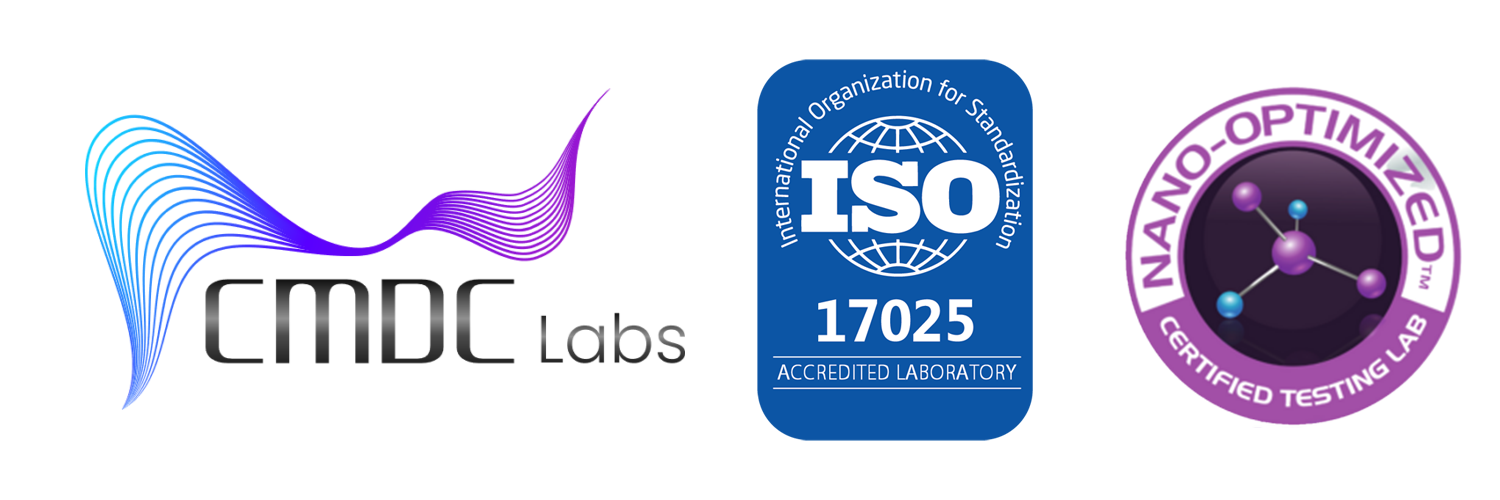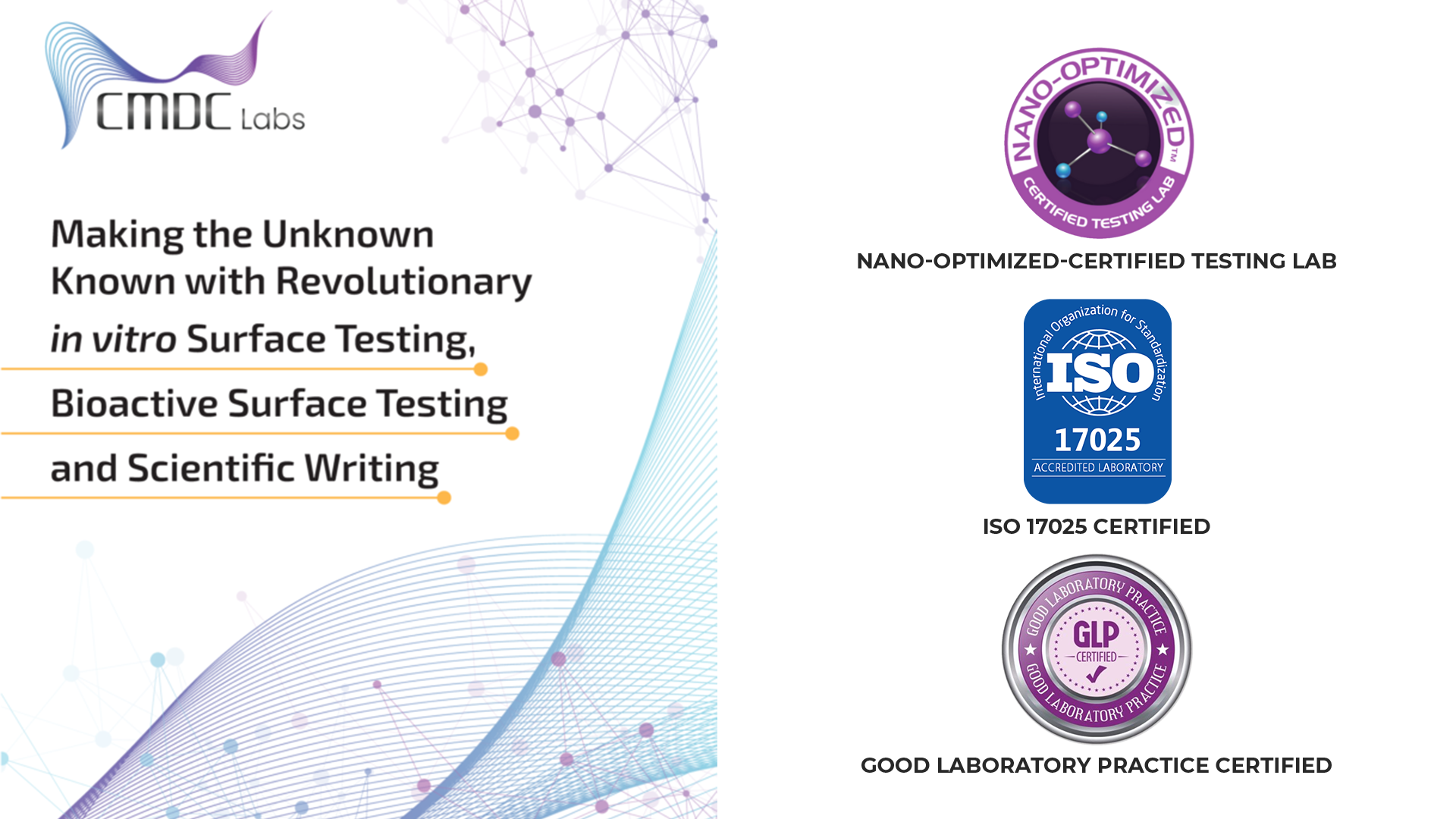When the U.S. Department of Commerce announced a new Section 232 National Security Investigation into imports of personal protective equipment (PPE), medical consumables, and medical devices, it sent a strong signal to both policymakers and manufacturers:
medical product safety is not just a healthcare issue — it’s a national security issue.
The COVID-19 pandemic exposed deep vulnerabilities in America’s medical supply chain. Critical products such as respirators, gowns, gloves, diagnostic swabs, and even surgical instruments became scarce when global logistics froze. Four years later, the federal government is revisiting the problem — not through public health channels alone, but through the lens of economic and defense resilience.
For testing laboratories like CMDC Labs, this development underscores an emerging priority: independent, verifiable product validation as a core component of national preparedness. In a world where the safety of a mask or the sterility of a catheter can affect not only patients but national readiness, scientific testing becomes a matter of strategic importance.
Understanding Section 232: From Trade Policy to Supply Chain Resilience
Section 232 of the Trade Expansion Act of 1962 authorizes the U.S. Department of Commerce to investigate whether certain imports threaten national security. Historically, it has been applied to materials like aluminum, steel, and critical minerals. But its latest focus — medical products — reflects a growing recognition that healthcare supply stability directly affects national security and economic independence.
The investigation announced in 2025 covers:
- Personal protective equipment (PPE)
- Medical consumables (syringes, swabs, tubing, filters, etc.)
- Medical equipment and devices (ventilators, monitors, surgical tools, diagnostics)
The goal is not to restrict trade indiscriminately but to determine whether heavy import dependence — often from a narrow set of foreign suppliers — leaves the United States vulnerable in emergencies.
The inquiry also examines quality assurance: whether imported devices meet the same manufacturing and validation standards required by the FDA, CDC, and Department of Defense. This quality dimension is where independent testing laboratories become a critical part of the solution.
Why Quality Equals Security
Supply chain resilience is not only about quantity — it’s about trust.
If imported medical products are substandard, contaminated, or lack proper documentation, they can pose risks not just to patients but to entire healthcare systems that rely on them in crises.
Recent investigations have revealed issues such as:
- PPE with false filtration ratings or counterfeit labeling.
- Medical gloves and gowns contaminated with microbial residues.
- Imported syringes and catheters made from sub-grade polymers or non-sterile materials.
- Diagnostic kits failing sterility or endotoxin standards.
When these products enter hospitals or military facilities, the consequences can be serious — from infection risk to equipment failure in emergency care settings.
In this context, quality testing and validation become an extension of national defense infrastructure. Laboratories that verify material integrity, sterility, and regulatory conformity serve as the scientific gatekeepers protecting the reliability of the healthcare supply chain.
CMDC Labs: Where Quality Assurance Meets National Preparedness
At CMDC Labs, we recognize that ensuring medical product quality is no longer just about regulatory compliance — it’s about resilience. Our testing programs help PPE and medical device manufacturers meet U.S. and international standards while providing traceable, data-driven assurance that their products can perform safely in any environment.
Below are the core ways CMDC Labs supports manufacturers, distributors, and government agencies in aligning product safety with national security objectives.
1. Independent Materials Testing: Verifying Integrity at the Source
Every medical product — from an N95 respirator to an infusion pump — begins with materials. The reliability of polymers, metals, fabrics, and coatings determines product performance and user safety.
Mechanical and Chemical Integrity
CMDC Labs performs mechanical testing, including tensile strength, puncture resistance, tear resistance, and filtration efficiency, to verify that materials meet or exceed FDA and ASTM specifications.
For PPE, our teams analyze melt-blown and spun-bond layers in masks and gowns to ensure consistent fiber density and particle-filtration performance.
For medical devices, we evaluate plasticizers, additives, and polymer blends using spectroscopy and chromatography, confirming that materials are free from contaminants such as phthalates, bisphenols, or unapproved fillers.
Thermal and Chemical Stability
Medical consumables often undergo sterilization via ethylene oxide (EtO), gamma irradiation, or steam autoclaving. CMDC Labs assesses material compatibility and degradation under these conditions to ensure devices maintain structural and functional integrity throughout their shelf life.
This testing guards against post-sterilization embrittlement, discoloration, or loss of elasticity — problems that can lead to device failure in critical care.
2. Sterility Validation and Bioburden Testing
Sterility is the cornerstone of medical device safety. Whether it’s PPE intended for surgical settings or catheters used in patient care, the absence of viable microorganisms must be verified through scientific testing — not assumed.
Sterility Assurance Level (SAL) Validation
CMDC Labs conducts sterility testing aligned with ISO 11737-2, AAMI ST98, and USP <71> methods. We validate sterilization processes to achieve the required 10⁻⁶ sterility assurance level, confirming that the probability of a viable organism surviving the sterilization process is less than one in a million.
Our sterility validation services include:
- Bioburden quantification (ISO 11737-1) before sterilization.
- Process qualification for EtO, gamma, or steam sterilization.
- Residual gas and chemical analysis to ensure no harmful residues remain post-sterilization.
Microbial Contaminant Profiling
Beyond sterility, CMDC Labs identifies residual microorganisms using culture and sequencing techniques. These results help manufacturers understand environmental or process-related contamination sources and improve facility hygiene programs.
By integrating sterility validation with root-cause analysis, we help clients prevent repeat contamination — not just document its absence.
3. Regulatory Documentation and Traceability
Compliance documentation has become as critical as the testing itself. Section 232 reviews and FDA inspections both demand traceable, verifiable proof that imported or domestically manufactured products meet U.S. standards.
CMDC Labs supports this need through:
- Full validation reporting: Detailed analytical methods, results, and statistical interpretation.
- Certificate of Analysis (CoA) issuance for each batch or component tested.
- Regulatory alignment with FDA 21 CFR Part 820 (Quality System Regulation), ISO 13485, and ISO 14971 (Risk Management for Medical Devices).
- Data traceability systems that ensure every sample, result, and deviation is logged, reviewed, and auditable.
These documentation frameworks allow clients to respond to regulatory inquiries or import inspections with confidence, backed by independent scientific evidence.
4. Supporting Domestic Manufacturing and Re-Shoring Initiatives
Section 232 aims not only to assess risks but also to stimulate domestic production of critical medical goods. As more companies shift manufacturing back to the U.S., CMDC Labs plays a pivotal role in qualifying materials, equipment, and processes to meet domestic standards from day one.
Our partnerships with emerging manufacturers include:
- Pre-production validation studies to confirm process readiness.
- Incoming raw material verification for new suppliers.
- Pilot-scale testing to ensure scalability without quality compromise.
This support accelerates FDA registration and 510(k) submission processes while helping companies avoid delays caused by failed validation or incomplete documentation.
5. Enhancing National Security Through Laboratory Partnerships
Independent laboratories are quietly becoming the backbone of national bio-industrial resilience. By verifying the integrity of medical equipment and PPE, CMDC Labs contributes directly to broader national objectives:
- Reducing dependence on foreign manufacturing by ensuring that U.S.-made products are validated to compete globally.
- Ensuring military and emergency readiness with reliable, verified supplies.
- Strengthening cross-agency collaboration among the Department of Commerce, HHS, FDA, and FEMA through standardized testing data and validation protocols.
Our scientific rigor translates into actionable assurance — the kind of evidence policymakers and healthcare providers rely on to make rapid, informed decisions during national emergencies.
The Broader Implications: Quality as a Strategic Advantage
For manufacturers, these evolving regulatory and national security frameworks present both challenges and opportunities. While the bar for quality assurance is rising, companies that invest in independent validation will hold a distinct competitive edge.
Regulatory Readiness
With FDA, ISO, and Section 232 standards increasingly interconnected, third-party testing allows companies to demonstrate proactive compliance and avoid costly post-market corrections or import holds.
Brand Differentiation
In the post-pandemic market, hospitals and procurement agencies are more discerning about sourcing. Demonstrating that a product has been independently tested for sterility, material safety, and performance consistency reinforces trust and marketability.
Supply Chain Resilience
Validated domestic manufacturing reduces vulnerability to global supply disruptions and import delays, ensuring steady availability of critical medical supplies.
CMDC Labs empowers manufacturers to transform compliance into confidence — helping them deliver products that are not only certified safe but strategically indispensable.
Building a Future of Verified Security
The intersection of healthcare, trade, and national security is no longer theoretical. It is shaping policy, investment, and industrial strategy. As Section 232 investigations unfold, one outcome is certain: scientific testing will sit at the core of every resilient medical supply chain.
Independent laboratories like CMDC Labs are uniquely positioned to ensure that this resilience is backed by data, not declarations. Through advanced materials testing, sterility validation, and transparent regulatory documentation, CMDC Labs helps safeguard the integrity of products that protect both patients and the nation.
Because in the world of medical devices and PPE, safety is strategy — and verification is strength.
Sources: FDD.org, U.S. Department of Commerce, FDA.gov, ISO.org, AAMI.org, HHS.gov

